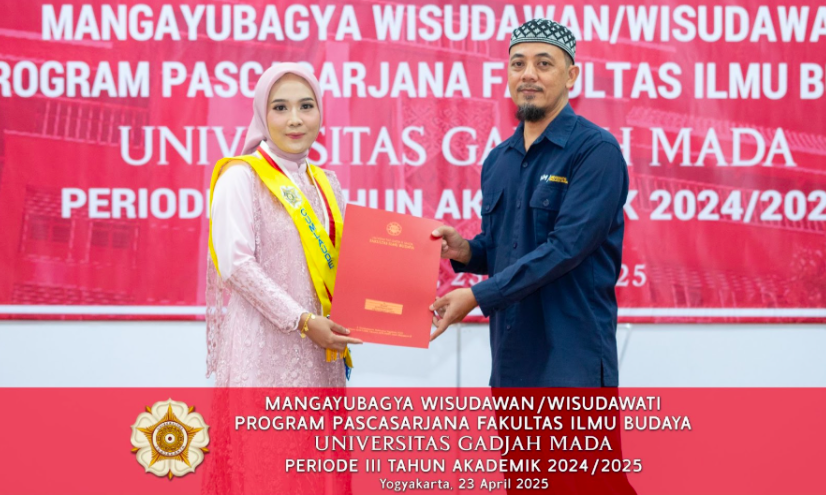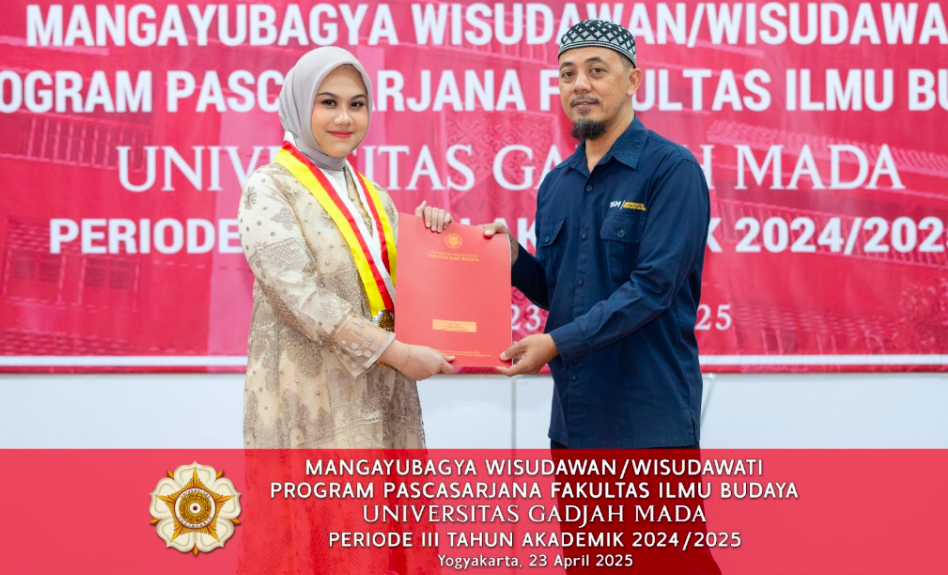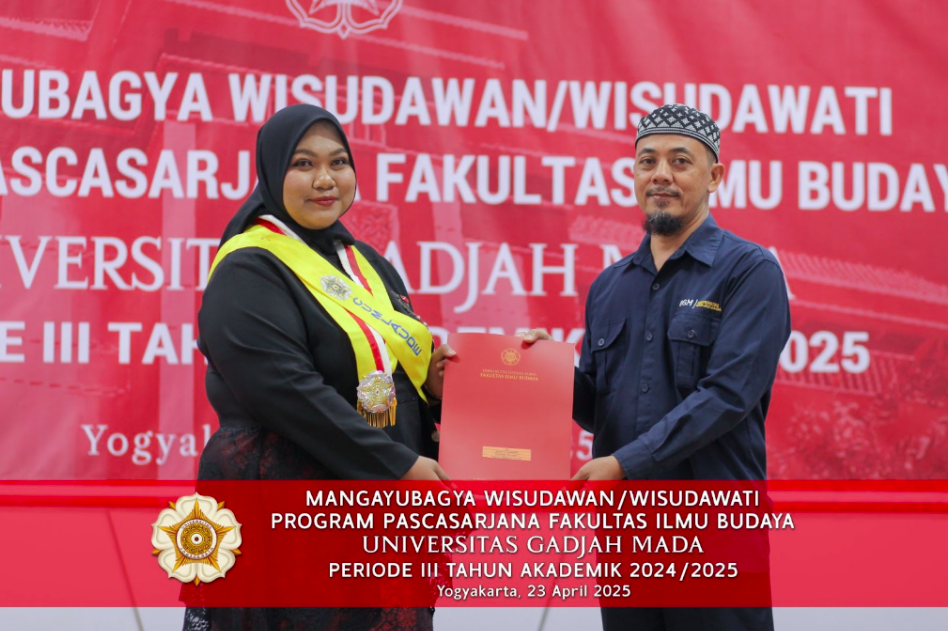Yogyakarta, 30/4/2025 – Amid the buzz of graduation celebrations, students of the American Studies Master’s Program at Universitas Gadjah Mada carry stories of struggle that go far beyond academic achievements. Through their theses, they have examined the voices of women, minority groups, and religious discourses in America—not merely as research subjects, but as mirrors reflecting pressing social issues with deep relevance to global life and the Sustainable Development Goals.
One of the most prominent themes is the matter of religiosity in contemporary American society. In her research, Eliyawati, S.S., M.A., explores the representation of American women’s religiosity in the TV series Young Sheldon. By combining Stuart Hall’s theory of representation and the Post-Nationalist approach in American Studies, she dissects how the religious beliefs of American women—from Baby Boomers to Generation X—are portrayed through intergenerational female characters. Her findings reveal a range of religious expression: from spiritual devotion that positions women as the “church within the family” to a shift toward secularism influenced by modernity, media, and education. This study not only captures the transformation of religious values in American society but also opens a space for reflection on the role of women within religious institutions and public life.

Eliyawati, S.S., M.A. with Dr. Aris Munandar, M.Hum., Head of the American Studies Master’s Program, FIB UGM
Leny Roslinda Sinaga, S.S., M.A. also explores gender representation in her study of the hit romantic thriller series You. The series becomes a reflective medium to examine how masculine dominance—disguised as romance—often manipulates women’s perceptions in popular culture. Leny investigates how love can become a veil for abuse and how American pop culture constructs and perpetuates such narratives. Using deconstruction theory, her research emphasizes the urgency of gender equality and the need for women to be conscious of power relations, both in personal relationships and in the public sphere, especially within the media industry that remains heavily influenced by masculine narratives.

Leny Roslinda Sinaga, S.S., M.A. with Dr. Aris Munandar, M.Hum., Head of the American Studies Master’s Program, FIB UGM
A similarly powerful lens is offered by Zahra Kamila, S.Pd., M.A., whose thesis focuses on the film On the Basis of Sex, which portrays the real-life struggles of Ruth Bader Ginsburg as she challenged a male-dominated legal system. The film serves as a gateway to examine masculine social structures while mapping strategies such as legal advocacy, access to higher education, and cross-gender collaboration. Zahra’s research underscores that the fight for gender equality is not only about breaking barriers but also about reinforcing values of justice and inclusive institutions—two critical elements in shaping a just and civil society.

Zahra Kamila, S.Pd., M.A. with Dr. Aris Munandar, M.Hum., Head of the American Studies Master’s Program, FIB UGM
In the digital realm, Annida Ul Marhamah, S.S., M.A. investigates the identity struggles of Bretman Rock, a Filipino-American LGBTQ+ influencer who uses new media as a platform for self-expression and resistance against stereotypes. Amid the prevailing heteronormative narratives in American pop culture, Bretman emerges as an alternative voice who boldly challenges the limits of racial, gender, and sexual identity representation. Through Jacques Derrida’s theory of deconstruction, Annida dissects how microaggressions—often expressed through public comments and social expectations—are not merely personal but deeply structural. Her study reveals that digital media narratives can be reclaimed as emancipatory spaces where authenticity becomes a form of resistance. In addressing SDGs related to reducing inequality and gender equality, the research highlights the power of authentic digital storytelling and advocates for broader cross-cultural understanding and self-representation as foundations for a more equitable society.

Annida Ul Marhamah, S.S., M.A. with Dr. Aris Munandar, M.Hum., Head of the American Studies Master’s Program, FIB UGM
These four studies affirm that academia is not merely a place to learn theory, but a space to voice injustice, deconstruct dominant narratives, and celebrate diversity. From films and television series to digital platforms, these students demonstrate that American Studies is no longer just about “America”, it is a critical tool to understand the world, others, and even ourselves in the midst of global transformation.
[Public Relation of American Studies, Nariza Ayu Pasha]

